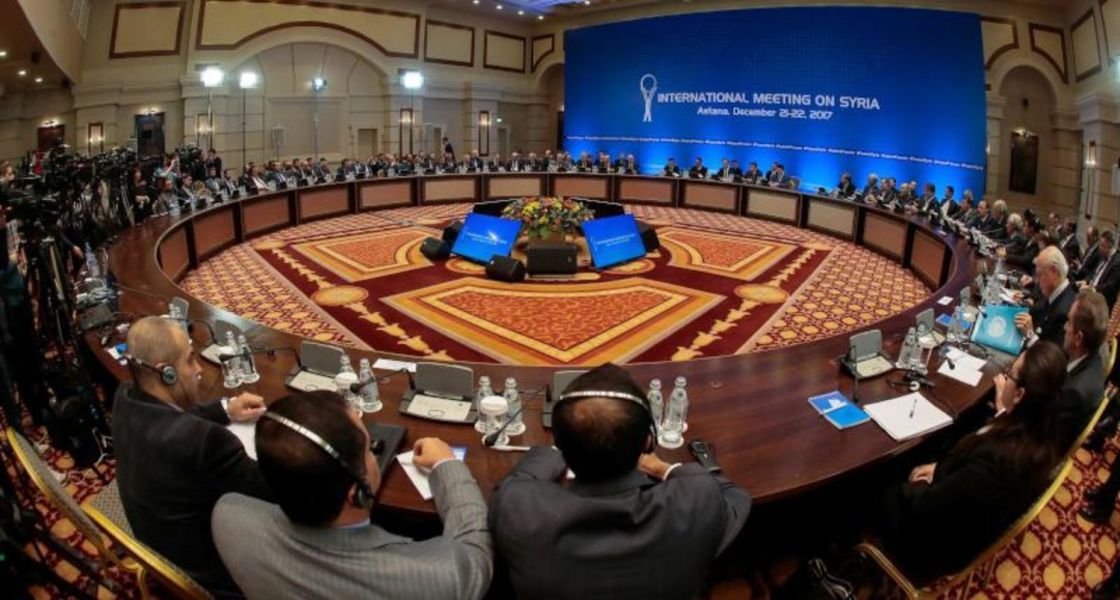- Editorials
- Posted
Kassioun Editorial 1189: How and Where Does a Serious Dialogue Begin?
For years since 2011, the regime and opposition extremists have been in agreement to reject dialogue, they have now been in agreement for several years to call for dialogue. However, the most important question is: what dialogue, how, about what, and for what?
The past years have proven that the extremist side that were against the idea of a political solution from the beginning, who then moved to officially accept dialogue, and implicitly accept UNSC Resolution 2254 (including the opposition’s official statements, and the government representative attending the Security Council session when the resolution was adopted in 2015 and thanking Russia for the wording it provided). We say that these years have proven that the successive calls for dialogue, including calls to hold a national conference, have so far been nothing more than a way to procrastinate, mislead, and evade the national obligations necessary to emerge from the catastrophe and to reunite Syria, territory and people, and to expel foreign forces therefrom.
The provisions of UNSC Resolution 2254, by which this or that side are trying to scare people, are very clear provisions, and are based on the Syrian people’s right to self-determination without external interference, and their right to achieve a Syrian-led Syrian-owned political transition.
These same provisions are the subjects, topics, and agenda of the required dialogue and negotiation, which include, among other things (presented neither in chronological order nor order of importance, and noting that what is between parentheses are edited by Kassioun):
- Paragraph 1 reconfirms “that the Syrian people will decide the future of Syria”.
- Paragraphs 5, 6, and 7, support a lasting and permanent ceasefire.
- Paragraph 8 reiterates prevention and suppression of terrorist acts.
- Paragraph 14 relates to “the safe and voluntary return of refugees” and “the need to build conditions” for that, and “the rehabilitation of affected areas” destroyed by years of war.
- Paragraph 12 relates to securing “humanitarian assistance” and releasing “any arbitrarily detained persons, particularly women and children”.
- Paragraph 4 calls for forming a transitional governing body (including its nature, powers, functions, and members) through consensus between the Syrian sides.
- Also, paragraph 4 calls for “drafting a new constitution” (that responds to the Syrian people’s aspirations and draws the general framework of the prospective form of their state).
- Paragraph 4 also calls for democratic “free and fair elections” (which would be the ending point of the transitional period towards the new Syria, whose territory and people are again united).
These provisions together form the agenda of any real national negotiation/dialogue. Therefore, those who talk about dialogue and neglect the implementation of 2254 are using their talk about dialogue to procrastinate and push further the political solution. Even worse is that they are starting from a specific understanding of the word “national”, where they limit it to certain groups, specific political alignments, or specific Syrian regions. Meaning, the dialogue they are calling for serves not only to delay and push further the solution, but also to sustain the de facto division.
Western intentions against implementing 2254 have been clear for many years and were expressed since adopting the “changing the regime’s behavior” slogan and then “step for step”. However, now they have become almost openly expressed through the eight American-driven European countries, which have begun to say explicitly that they see that “the political solution according to 2254 is out of reach”, meaning that they are openly against it this time.
In other words, the pretext that some people used publicly or through intermediaries, that the resolution was Western, has completely collapsed, and it has become clear that implementing this resolution is precisely against the American-Zionist interest.
Clarifying the programs required for the future Syria and putting them on the table for direct negotiations to implement the provisions of 2254, is the only way not only to get Syria out of its tragedy, but also to prevent its division, and to reunify its territory and people, against the American-Zionist will. This can be achieved by relying on international and regional powers that have an interest in stability in our region, primarily the Astana countries, China, and key Arab countries targeted by the American comprehensive hybrid chaos.


